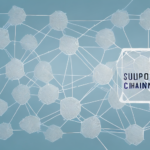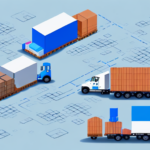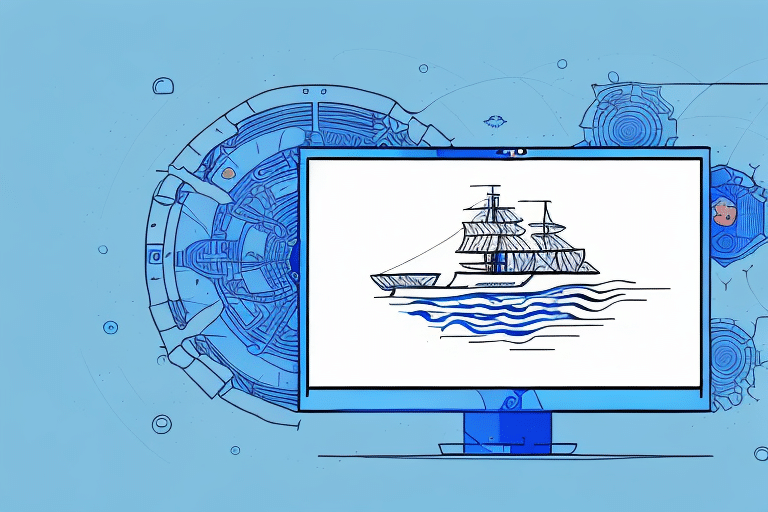Understanding Demurrage in Supply Chain Management
Supply chain management is an incredibly complex process that involves multiple interconnected systems and stakeholders. One of the critical elements in this process is demurrage. Demurrage refers to a charge that shipping lines or freight forwarders impose on the consignee or shipper for the delay in loading or unloading cargo beyond the agreed free-time period. This article provides a comprehensive understanding of demurrage in supply chain management, covering its definition, the difference between demurrage and detention, its impact on supply chain efficiency, and strategies to minimize demurrage costs in supply chain operations.
What is Demurrage, and How Does it Affect Supply Chain Efficiency?
Demurrage is a prevalent issue in the logistics industry that can disrupt supply chain operations and escalate costs. It occurs when cargo remains on the dock or with a carrier beyond the contractually agreed free period, resulting in additional fees that the consignee must pay. According to ShipScience, these fees can accumulate rapidly, increasing the overall cost of transportation and negatively impacting supply chain efficiency.
The impact of demurrage on supply chain efficiency is significant. Delays in deliveries can affect customer satisfaction, damage relationships with suppliers, and tarnish a company's reputation. Additionally, demurrage can lead to increased inventory costs, higher storage fees, and reduced cash flow. For instance, a study by Logistics Bureau indicates that companies can incur up to a 15% increase in transportation costs due to demurrage fees.
To mitigate the impact of demurrage, implementing better communication and coordination among all parties involved in the transportation process is essential. This includes shippers, carriers, and consignees. Establishing clear expectations and timelines, and ensuring that all parties are aware of potential delays or issues, can significantly reduce the likelihood of incurring demurrage fees.
Another effective strategy is to optimize transportation routes and modes. By selecting the most efficient and cost-effective transportation options, companies can reduce the time cargo spends in transit and minimize the risk of demurrage fees. This may involve using alternative modes of transportation, such as rail or barge, or employing advanced logistics software to optimize routing and scheduling.
The Role of Demurrage in Global Trade and Transportation
Global trade involves the movement of goods from one country to another, and demurrage plays an essential role in this process. It is a charge imposed by shipping lines or freight forwarders on the consignee or shipper for delays in loading or unloading cargo beyond the agreed free-time period. Typically, demurrage is calculated based on the number of days the cargo remains at the port beyond the free-time allowance.
Demurrage fees vary depending on several factors, including the type of goods being transported, the mode of transport, the port of destination, and the carrier's terms and conditions. For example, transporting perishable goods may incur higher demurrage fees due to the time-sensitive nature of the cargo.
These fees can significantly impact the cost of global trade and transportation. A report by the World Trade Organization highlights that unforeseen delays, such as bad weather or labor strikes, can lead to substantial financial losses for consignees and shippers due to accumulated demurrage fees. To avoid these costs, it is crucial to understand the carrier's terms and conditions, familiarize oneself with the port's operating hours and procedures, and maintain effective communication among all parties involved in the transportation process.
The Difference Between Demurrage and Detention in Supply Chain Management
While often confused, demurrage and detention are distinct concepts in supply chain management. Demurrage refers to fees incurred due to delays at the port, whereas detention fees are charging holding costs that occur after cargo has been picked up from the port.
Detention fees are typically charged by shipping lines when the cargo container is not returned to the port within the agreed timeframe. This could happen if a customer exceeds the time limit for returning the container or fails to return it on schedule. Understanding the difference between these fees is crucial as they have different implications for the supply chain and require tailored strategies for cost optimization.
Both demurrage and detention fees can significantly impact the overall cost of a shipment, sometimes even surpassing the cost of the goods being transported. To avoid these fees, it is essential to implement a well-planned supply chain strategy that includes accurate forecasting, efficient transportation, and timely communication with all parties involved in the shipment process. By understanding and differentiating between demurrage and detention, businesses can develop effective strategies to manage these costs, ultimately improving their bottom line and maintaining a competitive edge in the market.
The Impact of Demurrage on Inventory Costs and Delivery Times
Demurrage can have a profound impact on both inventory costs and delivery times. When cargo remains on the dock or with a carrier beyond the agreed free period, it incurs higher storage fees and increases storage costs for the consignee. This delay can lead to extended delivery times, resulting in decreased customer satisfaction. According to Supply Chain Digital, companies can experience up to a 10% increase in inventory holding costs due to demurrage.
Moreover, demurrage can escalate transportation costs, contributing to an overall rise in inventory expenses. Supply chain managers must thoroughly understand demurrage and its effects on inventory and delivery times to develop effective cost optimization strategies that enhance supply chain efficiency.
Another significant impact of demurrage is the potential loss of revenue for the consignee. Delayed cargo may not be available for sale or use as planned, leading to lost sales or production delays. This is especially critical for time-sensitive or perishable goods. For example, a delay in perishable goods can result in spoilage, leading to financial losses and reputational damage.
Additionally, demurrage can increase administrative costs for supply chain managers, who may need to allocate extra time and resources to track and manage these charges. This diverts resources from other important supply chain activities, such as inventory management and customer service, further impacting overall efficiency.
Strategies to Minimize Demurrage Costs in Supply Chain Operations
Supply chain managers can employ several strategies to minimize demurrage costs effectively:
- Negotiate Favorable Terms: Before signing contracts, negotiate favorable demurrage terms and conditions with carriers or shipping lines to reduce potential costs.
- Prioritize Shipments: Ensure that high-priority shipments have adequate capacity to unload cargo on time by booking port appointments in advance.
- Enhance Communication: Maintain proper communication among all stakeholders throughout the supply chain to prevent confusion and delays. Utilizing digital technologies like supply chain management software and real-time cargo tracking can facilitate this.
- Optimize Routing: Select the most efficient and cost-effective routes to reduce transit time and minimize the risk of delays. This may involve alternative transportation modes or advanced routing algorithms.
- Proactive Demurrage Management: Monitor and analyze demurrage data to identify areas for improvement. Implement corrective actions proactively to address potential issues before they result in significant costs.
Implementing these strategies can help supply chain managers reduce demurrage costs, improve overall efficiency, and enhance the reliability of supply chain operations.
How Technology is Helping Companies Manage Demurrage Better
Technology plays a pivotal role in modern supply chain management, significantly aiding companies in managing demurrage more effectively. Advanced supply chain management software and real-time cargo tracking systems allow supply chain managers to monitor cargo movement and manage delivery schedules with greater precision. This proactive monitoring enables the early identification of potential delays, allowing for timely corrective actions to avoid incurring demurrage fees.
Furthermore, technology enhances visibility and transparency across the supply chain, providing stakeholders with accurate, real-time information about cargo status. Improved communication and collaboration through integrated digital platforms lead to a more efficient and cost-effective supply chain.
Predictive analytics is another technological advancement aiding in demurrage management. By analyzing historical data and leveraging machine learning algorithms, supply chain managers can forecast potential delays and implement proactive measures to prevent them. These measures may include adjusting delivery schedules, rerouting cargo, or switching transportation modes. Utilizing predictive analytics can significantly reduce demurrage fees and enhance overall supply chain efficiency.
Case Studies: Real-Life Examples of Successful Demurrage Management
Numerous companies have successfully managed demurrage costs in their supply chain operations by adopting various strategies:
- Maersk Line: As the world's largest container shipping company, Maersk Line implemented a plan to recover lost revenue from containers not returned on time. This involved collaborating with customers to identify supply chain bottlenecks, enhancing communication and collaboration, and utilizing technology to improve cargo movement visibility.
- Tesco UK: The UK supermarket giant, Tesco, has adopted multiple cost optimization strategies in its supply chain operations, including effective demurrage management. Tesco has worked closely with suppliers to enhance communication and collaboration, and invested in digital technologies to track cargo movement, thereby avoiding delivery delays and associated demurrage fees.
These case studies demonstrate the effectiveness of strategic planning, technological integration, and collaborative efforts in managing and minimizing demurrage costs.
The Legal and Financial Implications of Demurrage for Shippers
Demurrage carries significant legal and financial implications for shippers. Legally, consignees may face actions for failing to pay demurrage fees, which can result in additional legal costs and potential damages. Financially, demurrage can adversely affect a company's cash flow, increase storage costs, and reduce overall profitability.
To navigate these implications, shippers must understand the legal frameworks governing demurrage and proactively develop strategies to manage these costs. This involves negotiating favorable terms and conditions with carriers, investing in digital technologies for efficient cargo tracking, and maintaining accurate records of cargo movements to ensure compliance with contractual obligations.
Moreover, shippers should stay informed about changes in regulations and industry standards related to demurrage to mitigate potential legal risks and financial burdens.
Future Trends in Demurrage Management for a More Efficient Supply Chain
Looking ahead, several trends are emerging in demurrage management that promise to enhance supply chain efficiency and reduce costs:
- Blockchain Technology: Blockchain offers a transparent and secure system for tracking cargo movements and managing payments. By reducing the risk of fraud and disputes, blockchain can streamline demurrage management processes.
- Automation and Artificial Intelligence: Automation and AI can decrease labor costs and improve the accuracy and speed of cargo movements. These technologies help minimize delays and prevent the occurrence of demurrage charges.
- Internet of Things (IoT): IoT devices can provide real-time data on cargo conditions and locations, enabling more precise management of shipments and proactive mitigation of potential delays.
- Advanced Predictive Analytics: Enhanced predictive analytics tools can offer deeper insights into potential delays, allowing for more effective preventive measures and optimized supply chain operations.
Adopting these emerging technologies will be crucial for companies aiming to stay competitive and efficient in their supply chain management practices.
Conclusion
In conclusion, demurrage is a critical element in supply chain management that can significantly impact costs, delivery times, and customer satisfaction. It is essential for supply chain managers to possess a thorough understanding of demurrage and develop effective strategies to minimize its impact on operations. These strategies include negotiating favorable terms with carriers, investing in digital technologies for better cargo tracking, enhancing communication and collaboration among stakeholders, and maintaining accurate records. By effectively managing demurrage, supply chain managers can improve efficiency, reduce costs, and enhance customer satisfaction, thereby ensuring a more reliable and competitive supply chain.




















